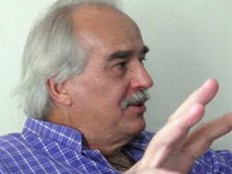|
||||||||||||||||||
| Download the revised decree and electoral calendar, published in the official journal |
|
|
Haiti - Social : The causes of the failure of the international community in Haiti 29/12/2010 09:06:50
In an interview published Monday in the newspaper "Le Temps" in Switzerland, the representative of Secretary General of the OAS Seitenfus Ricardo explains the causes and errors which led to the failure of the international community in Haiti. Ten thousand peacekeepers in Haiti. In your view, a productive presence ? Ricardo Seitenfus : The system of dispute prevention within the UN system is not adapted to the Haitian context. Haiti is not an international threat. We are not experiencing civil war. Haiti is not Iraq or Afghanistan. And yet the Security Council, since lack of alternative, imposed peacekeepers since 2004 after the departure of President Aristide. Since 1990, we are here in our eighth UN mission. Haiti since 1986 and saw the departure of Jean-Claude Duvalier's what I call a low intensity conflict. We are faced with struggles for power among political actors who do not respect the democratic game. But it seems to me that Haiti, the international arena, essentially paying its proximity to the United States. Haiti has been the subject of negative attention from the international system. It was for the UN to freeze the power and transform the Haitian prisoners in their own island. The Anguish of boat people largely explain the decisions of international vis-à-vis Haiti. We want at any price they stay home. What prevents the normalization of the Haitian case ? Ricardo Seitenfus : For two hundred years, the presence of foreign troops has alternated with that of dictators. It is the force that defines international relations with Haiti and never dialogue. The original sin of Haiti, on the world stage is his release. Haitians commit unacceptable in 1804: a crime of lese-majeste for a troubled world. The West was then a world of colonialism, slavery and racist base its wealth on the exploitation of conquered lands. So the Haitian revolutionary model scares superpowers. The United States does not recognize Haiti's independence in 1865. And France requires payment of a ransom to accept this release. From the beginning, independence is compromised and hampered the development of the country. The world has never known how to deal with Haiti, so he ended up ignoring it. Began two hundred years of solitude on the international stage. Today, the UN has blindly Chapter 7 of its charter, it deploys its troops to impose its peace operation. It solves nothing, is worse. We want to make Haiti a capitalist country, an export platform for U.S. market is absurd. Haiti must return to what it is, that is to say, a predominantly agricultural country still fundamentally imbued customary law. The country is continually described in terms of its violence. But without a state, the level of violence reaches yet a fraction of that of Latin America. There are elements in this society that have prevented the violence from spreading beyond measure. Is not a resignation to see a nation unassimilable in Haiti, whose only horizon is a return to traditional values ? Ricardo Seitenfus : There is a part of Haiti that is modern, urban and touring abroad. An estimated 4 million the number of Haitians who live outside their borders. This is an open country in the world. I do not dream of returning to the sixteenth century, an agrarian society. Haiti but lives under the influence of international NGOs, charity universal. Over 90% of education and health are in private hands. The country has no public resources to be able to operate in a minimal state system. The UN fails to take account of cultural traits. Summarize in Haiti peace operation is to make the economy the real challenges facing the country. The problem is socio-economic development. When the unemployment rate reached 80%, it is unbearable to deploy a stabilization mission. There is nothing to stabilize and build everything. Haiti is one of the most subsidized in the world and yet the situation has only deteriorated over the past twenty-five years. Why ? Ricardo Seitenfus : Emergency aid is effective. But when it becomes structural when it replaces the state in all its missions, it leads to a collective lack of responsibility. If there is evidence of the failure of international aid, is Haiti. The country became a Mecca. The earthquake of 12 January and the cholera epidemic only accentuate this phenomenon. The international community has the feeling of having to repeat every day that it ended the previous day. Fatigue of Haiti begins to emerge. This small nation has surprised the world conscience to disasters increasingly huge. I hope that in the plight of 12 January, the world would understand that he had gone wrong with Haiti. Unfortunately, it has reinforced the same policy. Instead of taking stock, we sent more soldiers. We must build roads, erect dams, participate in the organization of the State, the judicial system. The UN says it has no mandate for that. Its mandate in Haiti is to keep the peace of the cemetery. What role do NGOs play in this bankruptcy ? Ricardo Seitenfus : Since the earthquake, Haiti has become a crossroad. For transnational NGOs, Haiti has become a place of forced passage. I would say even worse than that of training. The age of cooperating who arrived after the earthquake is very low, they landed in Haiti without any experience. And Haiti, I can tell you, is not suitable for amateurs. After Jan. 12, because of massive recruitment, the professional quality has declined significantly. There is an evil or perverse relationship between the strength of NGOs and the weakness of the Haitian State. Some NGOs exist only because of the misfortune of Haiti. What mistakes were made after the earthquake? Ricardo Seitenfus : Faced with the massive importation of consumer goods to feed the homeless, the situation of Haitian agriculture has yet péjorée. The country offers a free field to all humanitarian experiences. It is unacceptable from the moral standpoint to consider Haiti as a laboratory. Reconstruction of Haiti and the promise that we hold the promise of $ 11 billion inflame lust. It seems that a lot of people come to Haiti, not in Haiti but to do business. For me American is a disgrace, an affront to our conscience. An example: the Haitian doctors that Cuba shape. More than 500 have been educated in Havana. Nearly half of them, then they should be in Haiti, working today in the United States, Canada or France. The Cuban revolution is currently financing the training of human resources for its capitalist neighbors... We constantly described Haiti as the margin of the world, you feel rather the country as a concentrate of our contemporary world...? Ricardo Seitenfus : It's concentrate our tragedies and failures of international solidarity. We do not rise to the challenge. The world press has described in Haiti and chaos. The reaction of public opinion is not expected. For her, Haiti is one of the worst countries in the world. We must go to the Haitian culture, we must go to the land. I think there are too many doctors at the bedside and the majority of these doctors are economists. But in Haiti, we need anthropologists, sociologists, historians, political scientists and even theologians. Haiti is too complex for people who are pressed, cooperatives are in a hurry. Nobody takes the time nor the taste has to try to understand what I might call the soul of Haiti. Haitians have seized property, which we believe, we the international community as a milking cow. They want to take advantage of their presence and they do so with extraordinary mastery. If we consider only the Haitians by the money we make is that we went that way. Beyond the admission of failure, what solutions do you offer ? Ricardo Seitenfus : In two months, I completed a two-year mission in Haiti. To stay here and not be overwhelmed by what I see, I had to create a number of psychological defenses. I wanted to remain an independent voice despite the weight of the organization I represent. I kept because I wanted to express my profound doubts and tell the world that is enough. This is enough to play with Haiti. January 12, taught me that there is tremendous potential for solidarity in the world. Even if we should not forget that in the early days, it is the Haitians themselves, bare hands, who tried to save their loved ones. Compassion has been very important in an emergency. But charity can not be the driving force in international relations. These are autonomy, sovereignty, fair trade, respect for others should be. We need to think simultaneously providing export opportunities for Haiti but also protect the family farm which is essential for the country. Haiti is the last untapped Caribbean paradise for tourism, with 1700 kilometers of pristine coastline and we need to encourage cultural tourism and avoid paving the way for a new Eldorado of mass tourism. The lessons we give are ineffective for too long. Reconstruction and the accompaniment of a rich society is one of the last great human adventure. 200 years ago, Haiti has illuminated the history of mankind and the human rights. We now let a chance for Haitians to confirm their vision. HL/ Arnaud Robert / Le Temps - Monday December 20, 2010
|
|
|
Why HaitiLibre ? |
Contact us |
Français
Copyright © 2010 - 2026 Haitilibre.com |





